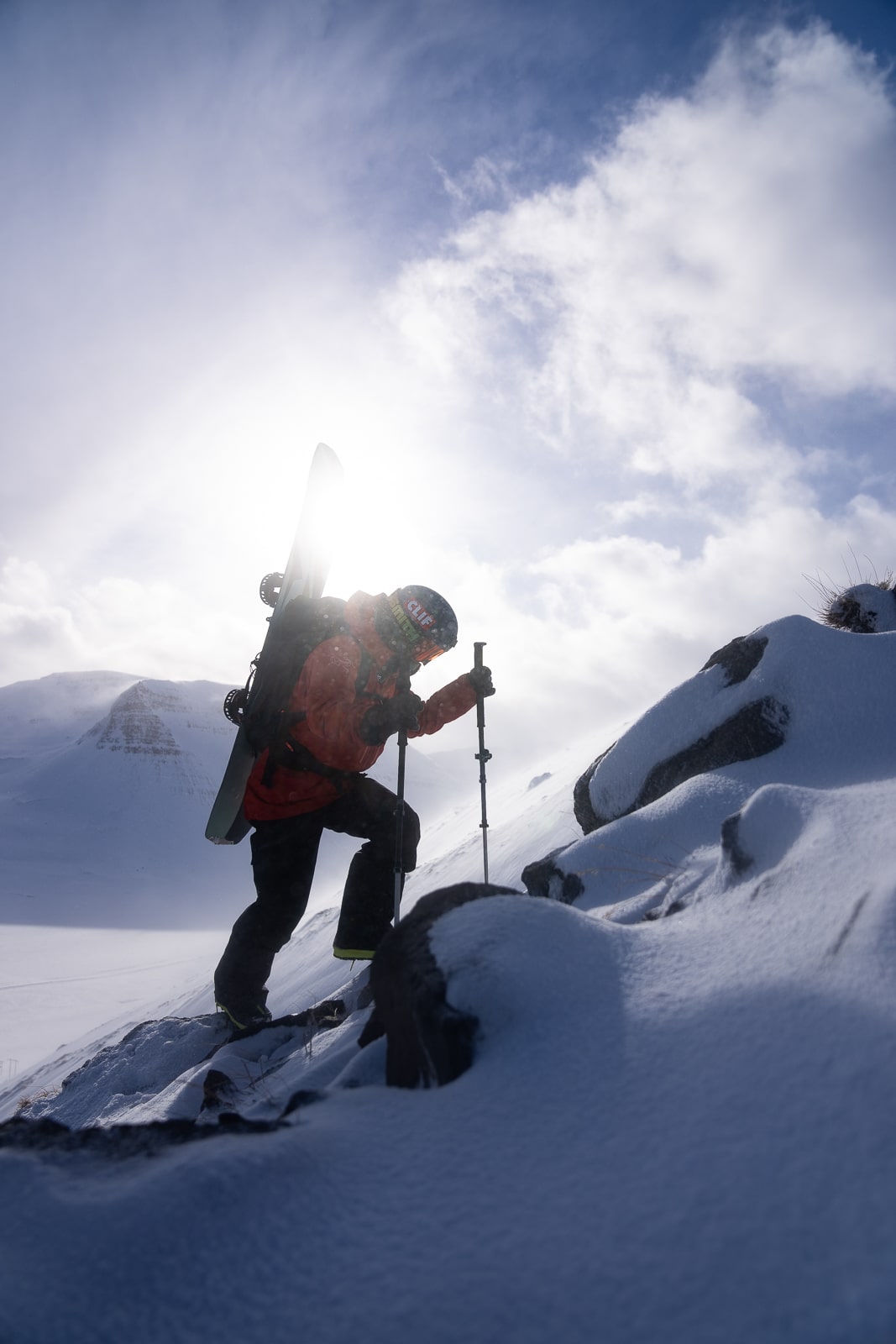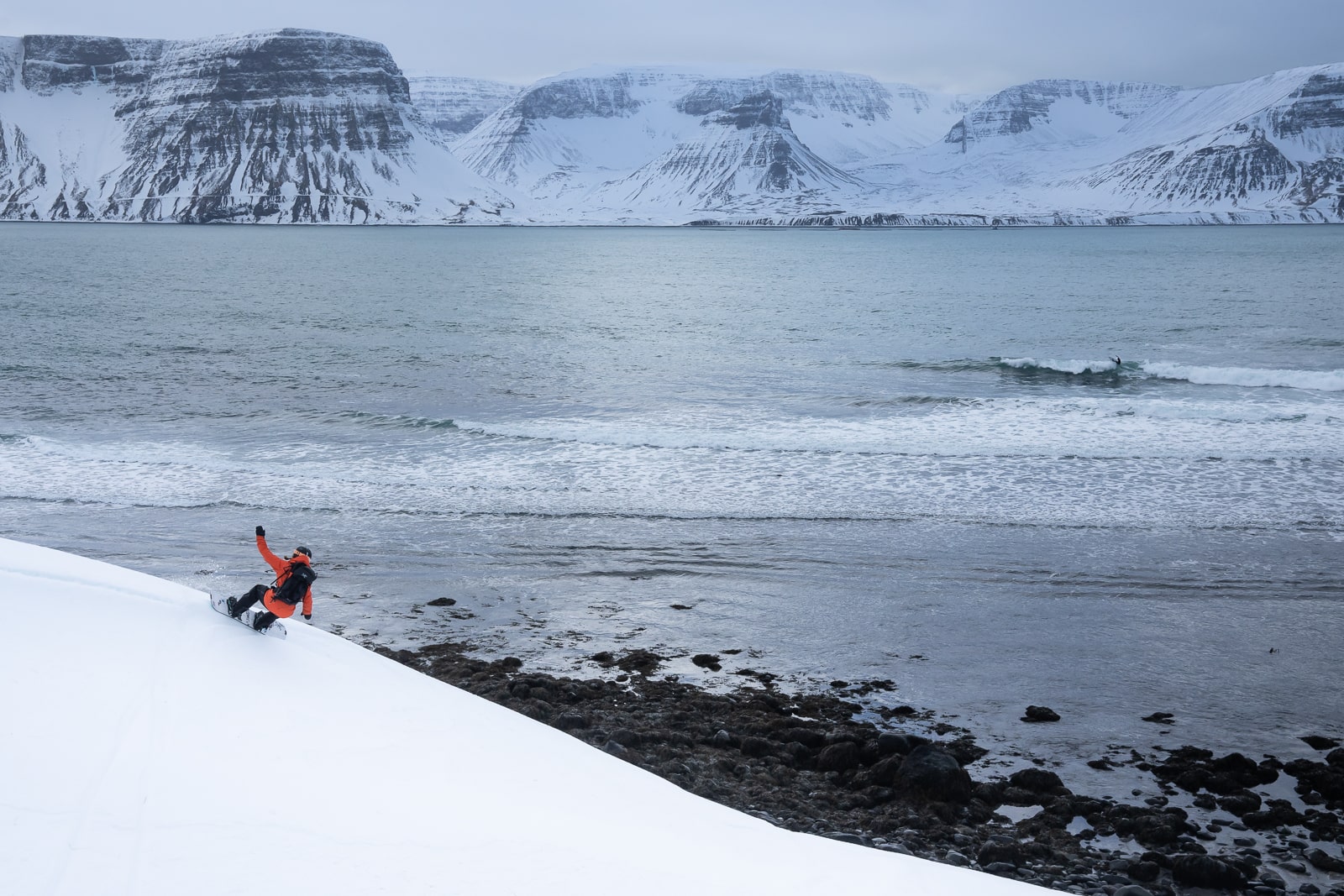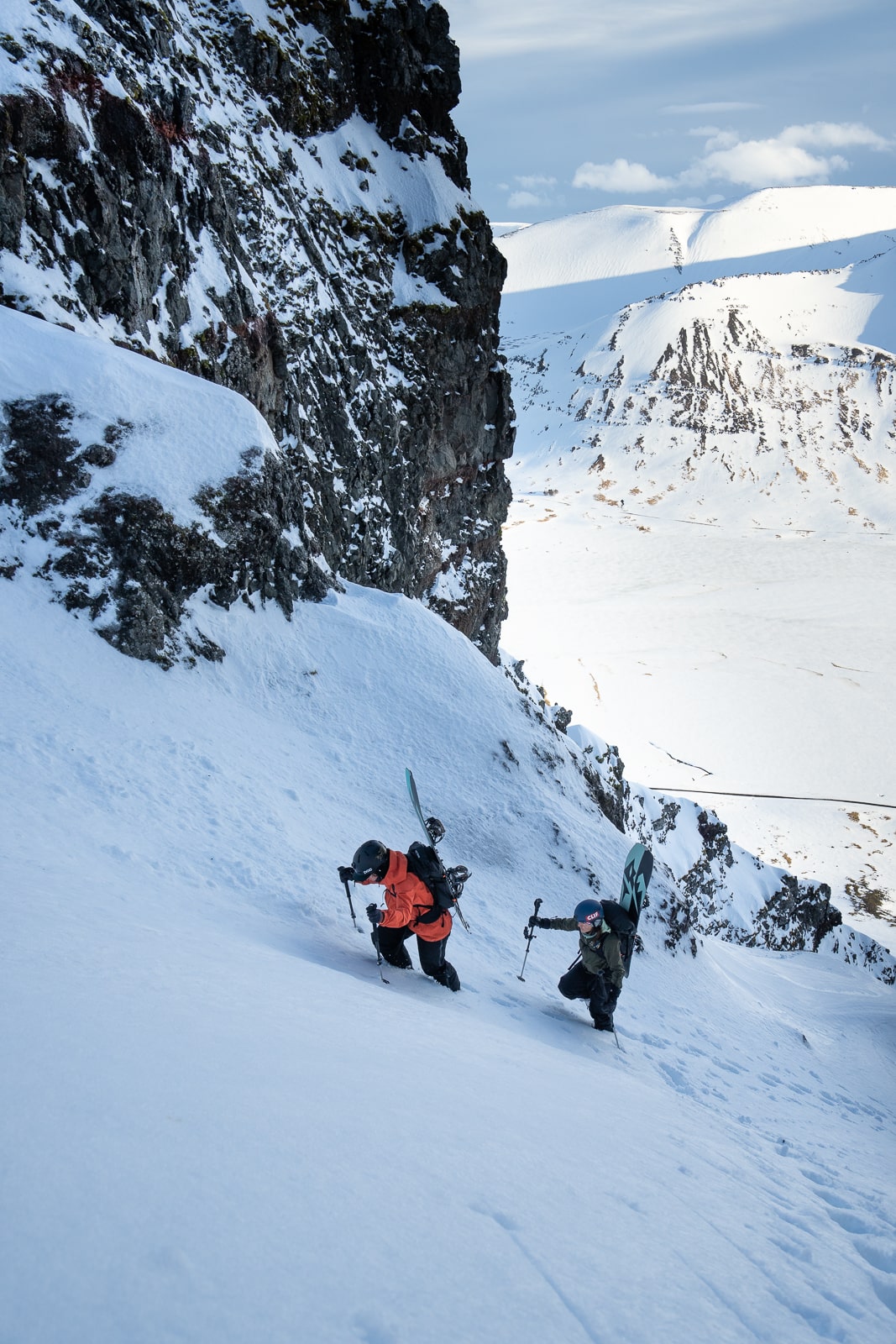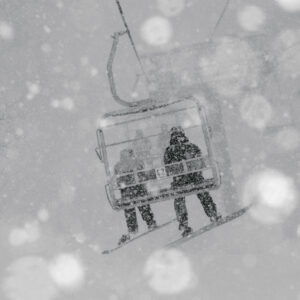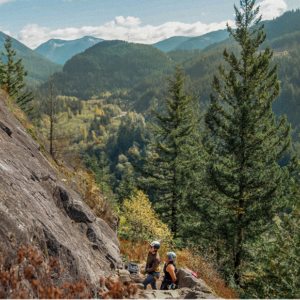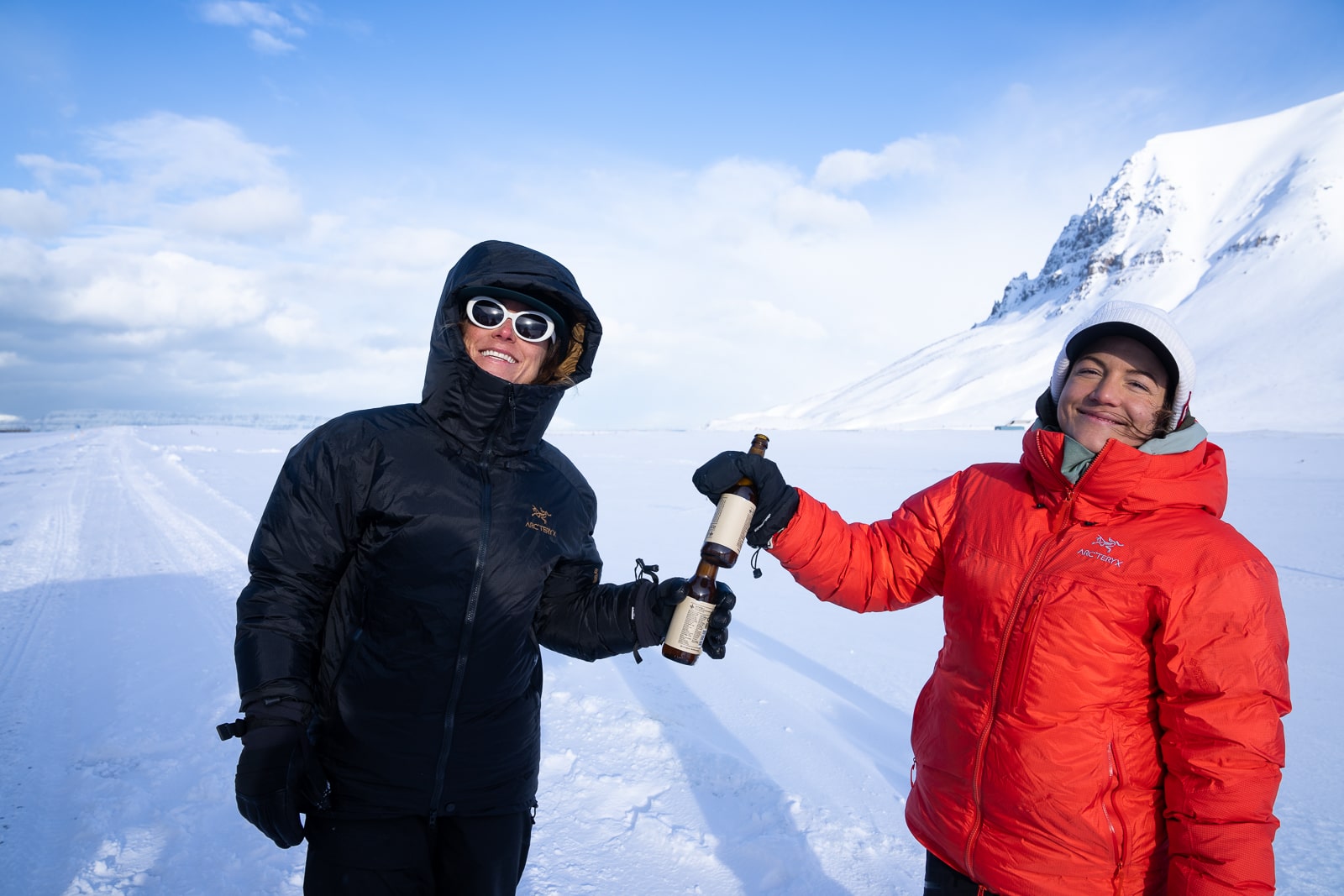The work of creation is rarely a smooth or straightforward thing.
Sturge: I’ve been fascinated by physics the last few years, and I’d been learning about the gravitational waves that sort of echo and spread out through the universe. Then through what I do as a filmmaker, I got interested in how the most macro levels seem to parallel the most human, micro level moments of creating a song or looking at a wave or a mountain and seeing a line. Those are forms of creation to themselves. And at the same time, Justin Sweeny at Arc’teryx had the idea of making a film about the connections between surfing, snowboarding and music. That’s where the concept really started — how you go from the Big Bang to the places where the human spark of creation comes from. And Iceland was an ideal location to look at that — it’s such a raw, powerful place that’s still being born out of the ocean.
Moon: I’ve also spent a lot of time thinking about where creativity comes from and how you tap into it. To me, I think a lot of it is just finding a place where you can be open — it’s like a flow state in that sense. In climbing I always felt that way — when you finally send a route, you aren’t always conscious of the effort, it just feels like this flow happens. And in the last decade, I’ve dedicated myself more to the ocean, and that’s an even more mystifying process, because a wave is a burst of energy that came from tides and sun and wind and all these factors. Ultimately, it was the cosmos that created a storm that built up over thousands of miles.
The other thing that excited me about the concept was that I’ve spent a lot of time with Griff — I met him surfing here in Oregon, and we started chatting in the water and ended up making another film together. His songs are really based in experience and a sense of place, and his music is so good at capturing the feel of something new. So in my mind this was an opportunity to look at where his creativity comes from, and how it would work when he was somewhere he’d never experienced before. Also, like Sturge said, it’s such a primal, mind-blowing place over there. That was really neat, to be in the middle of all that and be able to think about these seen and unseen forces and how we connect into them.
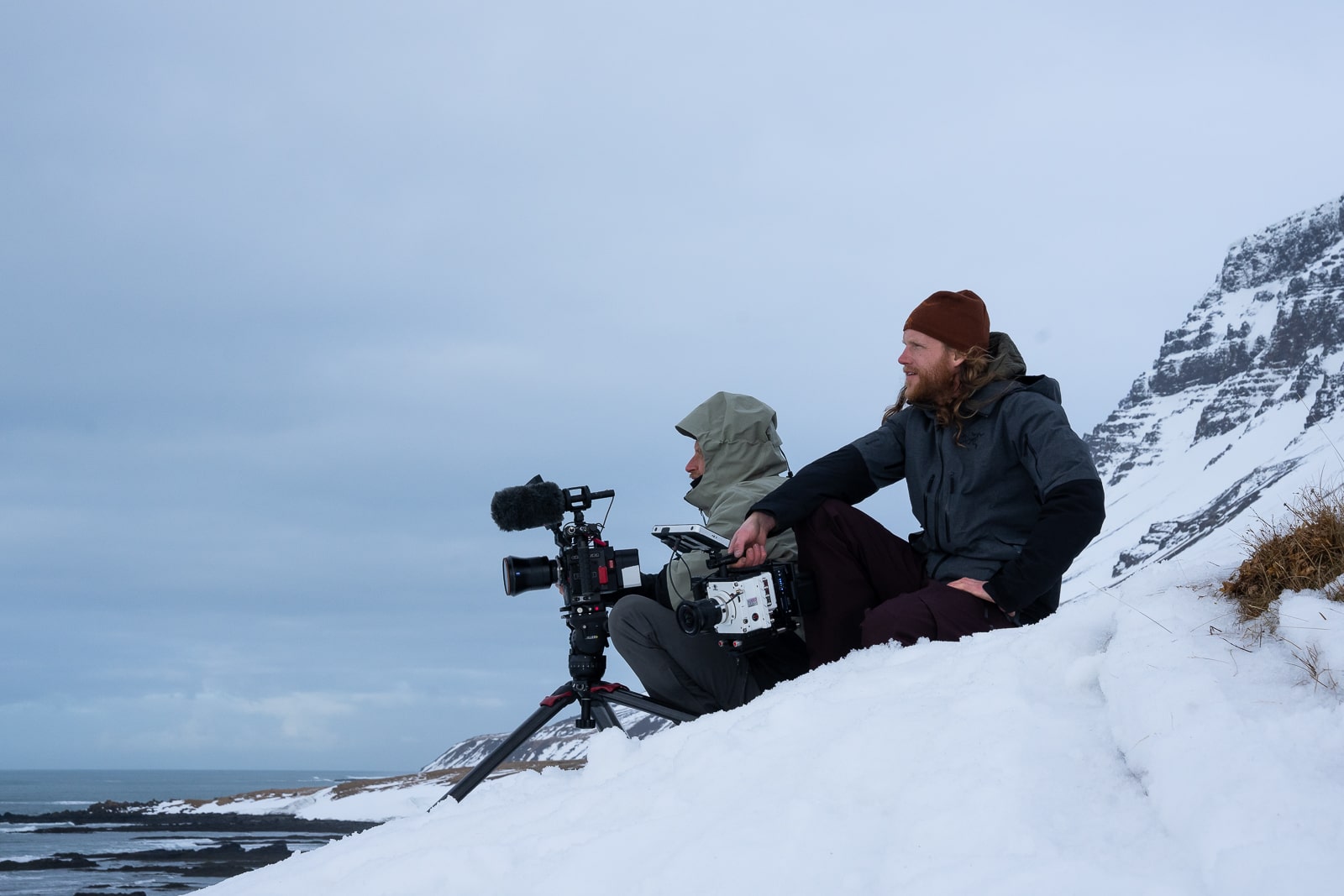
Sturge: Oh, totally. I was trying to explain these physics ideas I’ve been studying, and I wasn’t sure if the athletes would be game to go there and discuss that. But Robin, Pete and Elena were totally down to engage with it all. They’re all creators in their own elements, and everyone was open to talking about it and finding a more human vocabulary for it. Everyone was used to engaging in their creative process, and I think that translated well to these more scientific concepts. But you know, there was a certain boundary where they’d just look at me like I was crazy. (Laughs.)
Moon: Griff was really willing, too. I was sitting in on the interview, and he was so open and honest with it. Here’s this twenty-something-year-old, and he’s just dropping the knowledge. I knew he could go there, but I wasn’t sure if he’d want to after the things he went through before the film.
Sturge: Yeah, it was a difficult shoot. Initially, we were all supposed to go together in one group. But two days before we left, Griff’s tiny house burned down. He wasn’t in it, thankfully, but he lost a bunch of his music and belongings. At first, he was saying “It’s OK, I’m still going to come,” but he called us a few days later and was like, “Hey, I can’t do it, I need to pick up the pieces of my life for a bit.” The connection between sport and music was the foundation of the story, so we didn’t know what we’re going to do.
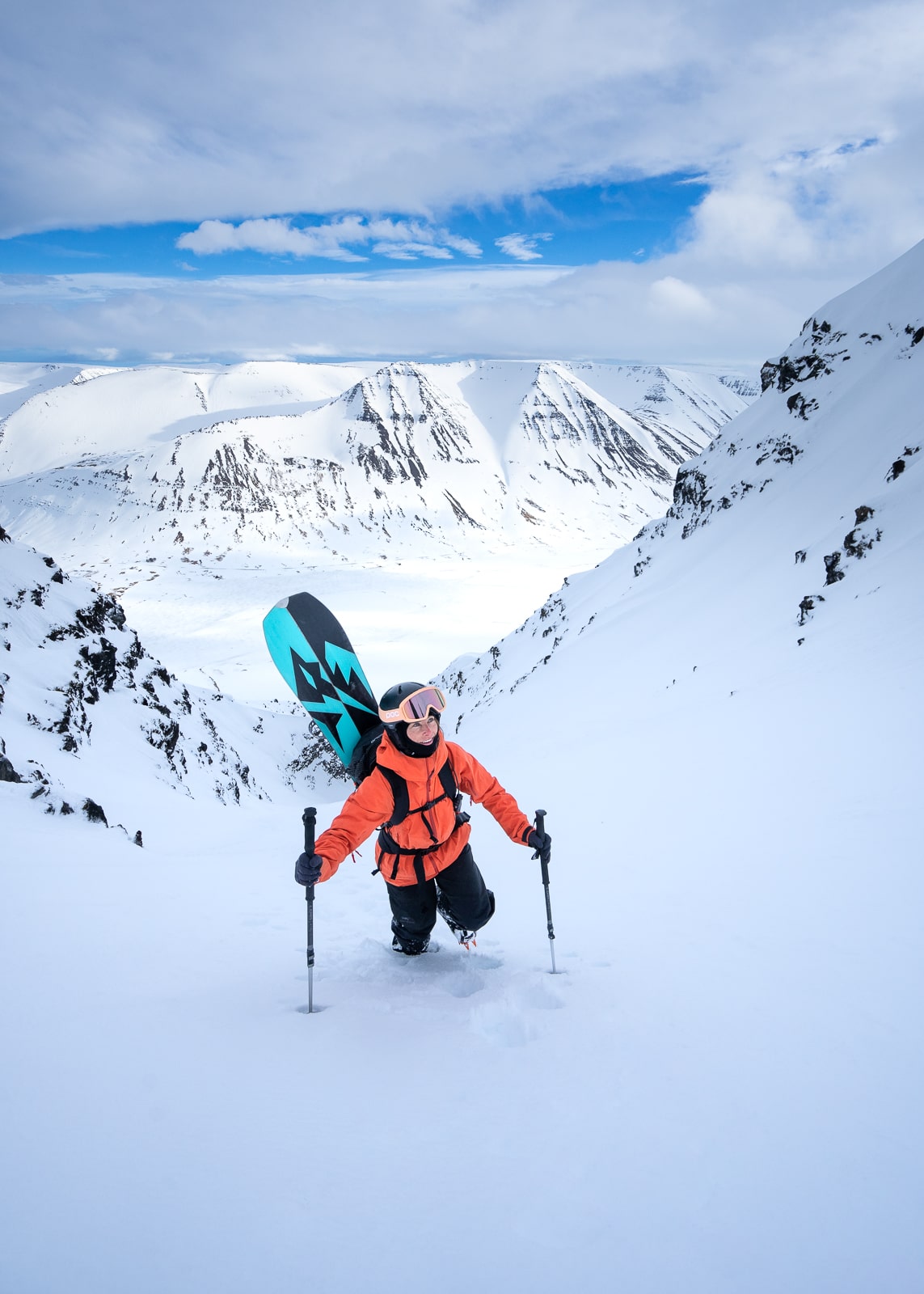
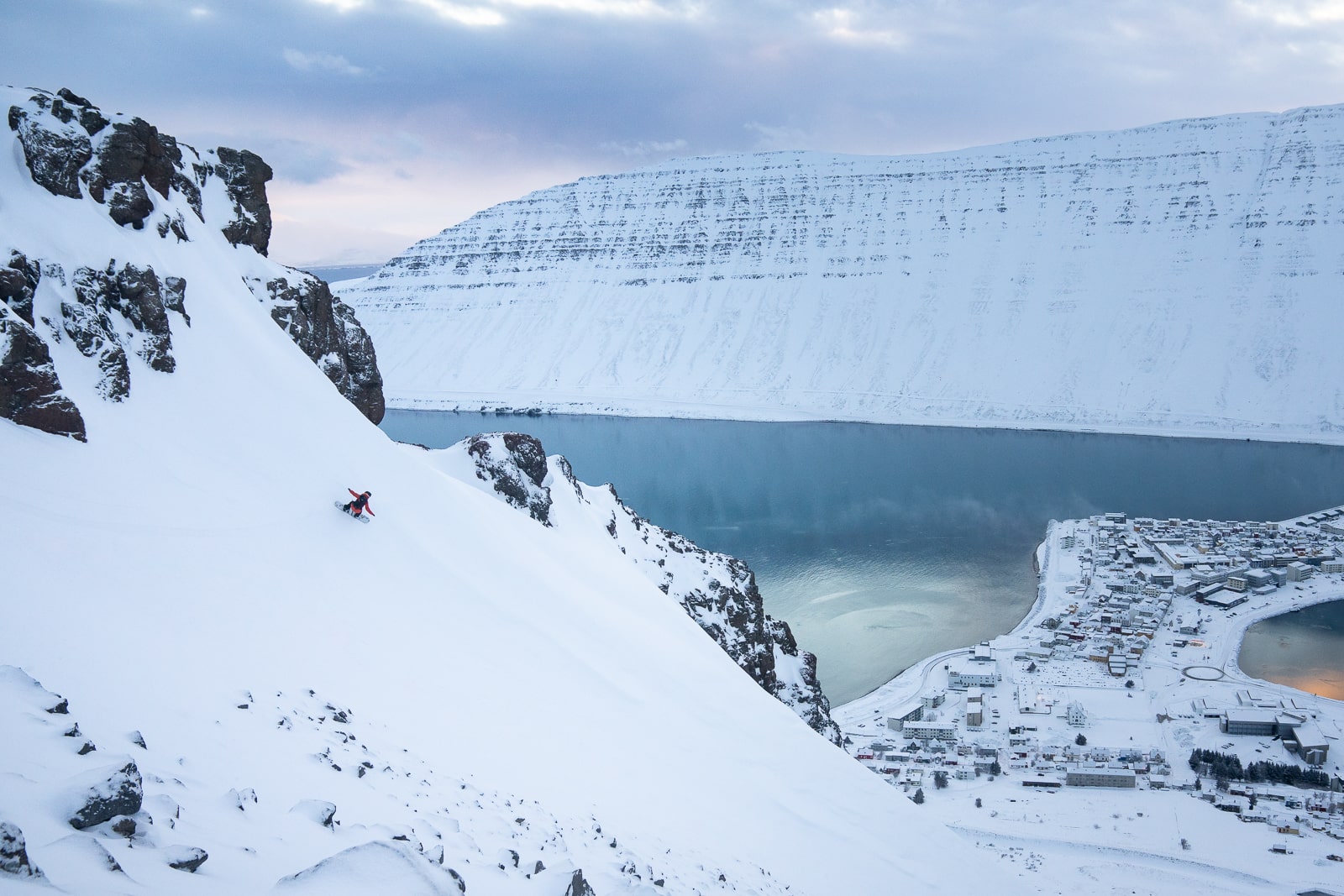
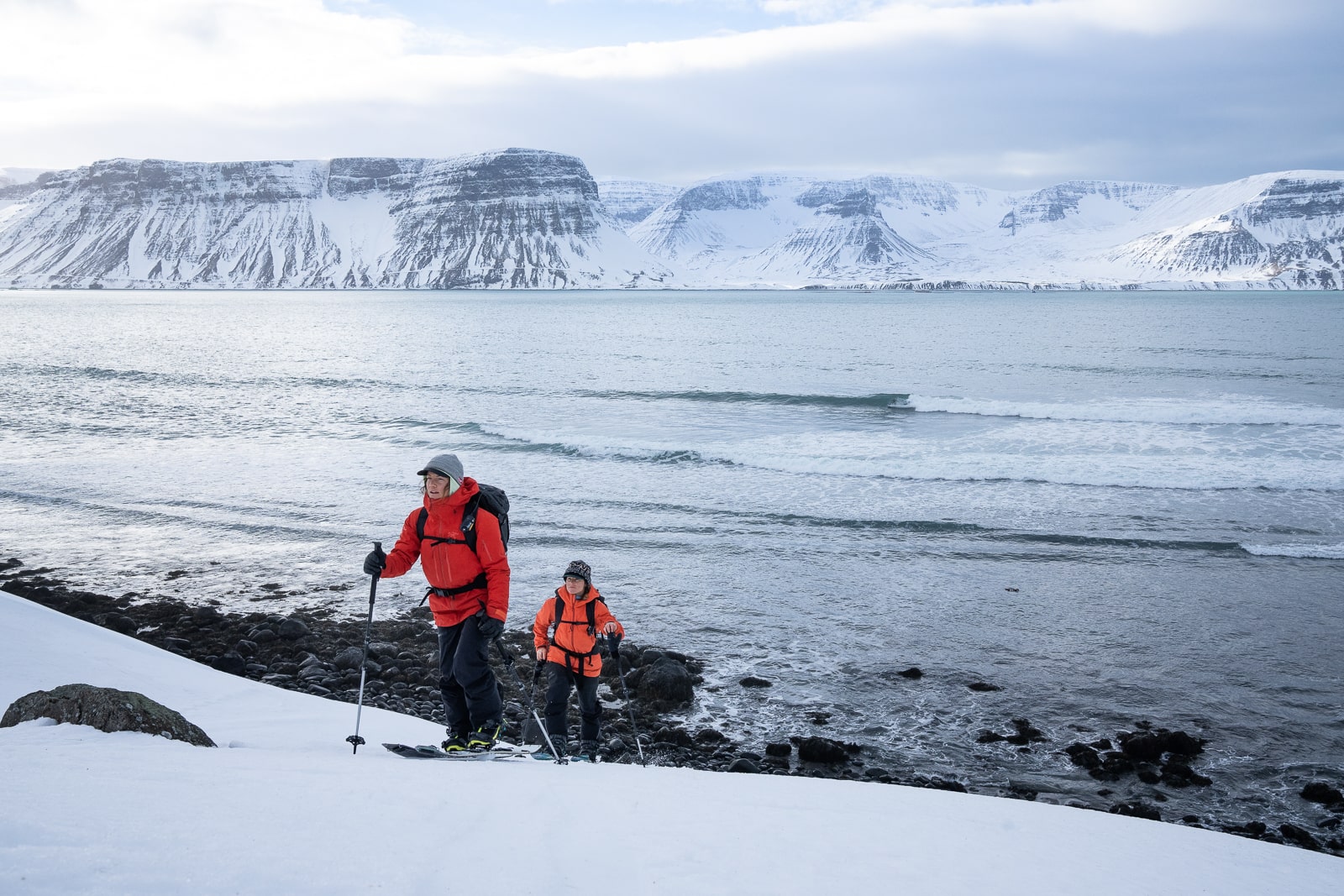
Then, after talking to everyone, we decided to proceed with the surfing and snowboarding, and do a separate trip with Griff a few weeks later. But the whole time we were operating with some mental struggle, and there was a huge amount of physical struggle too — Iceland had an incredible winter with tons of powder, but the day we got there it rained buckets and the good snow never really came back.
 The elements were just nasty, and we were just scratching at whatever we could to make it work.
The elements were just nasty, and we were just scratching at whatever we could to make it work.
When we eventually got out in the mountains and went camping, it was pretty heinous. We tried to go snowboarding the day after setting up, made it maybe 500 metres, and things were getting ripped off our backs and flying down the hill. I was honestly worried Elena would get blown off the mountain, so we just turned around and went back to the tent and played cards all day.
Pretty much the whole three weeks were like that. The weather would look great, but by the time you were on top of the mountain you’d be in a whiteout. We had a tough time with gear, too — the wind took out a tripod, snapped a lens, snapped a monitor, a smaller drone decided to do a backflip and crash. Our kit was just getting whittled down until we had pretty much nothing to work with at the end. But then we came back on the second shoot with Griff, and everything went perfect — groovy and mellow with great sun.
Moon: Yeah, but it wasn’t easy. I remember looking at one of the temperature charts that said the water was 34 at the spot where most of the footage came from, and there was a creek flowing right where I had to sit while I was filming. So it wasn’t only 34 in the water, but there was snowmelt flowing through. I could only last an hour before I started shaking. But I think the spookiest time was when I was shooting from the water and squalls would come through — I’d lose sight of shore, lose sight of Pete, all my landmarks were just gone. I think that’s one of the most alone feelings I’ve ever felt.
Sturge: For me it was more like a reinforcement of the process. There are always things that go wrong and a certain degree of mayhem, but you can lean into what you have and amplify the good things you’re getting. It felt like the making of the film mirrored the creative process we portrayed in it. You have these experiences, you meet some form of struggle, and then you have to give it patience and time. Stick with it long enough, and you’ll find a way to make it work.
Moon:Also the importance of getting out of your comfort zone. When you’re working with something as elusive as creativity, you have to be willing to adapt and let the intangibles happen, because you’ll often find some magic there. That’s something I always say to creatives who are starting out — just keep your mind open, because opportunities might not always present themselves in a way you expect. Starting a project like this you have no idea how it’ll turn out, and while we were there it felt like we were screwed. Everyone was just getting their asses kicked. But the whole crew kept at it, and by the end we had a full film and it all worked out.
